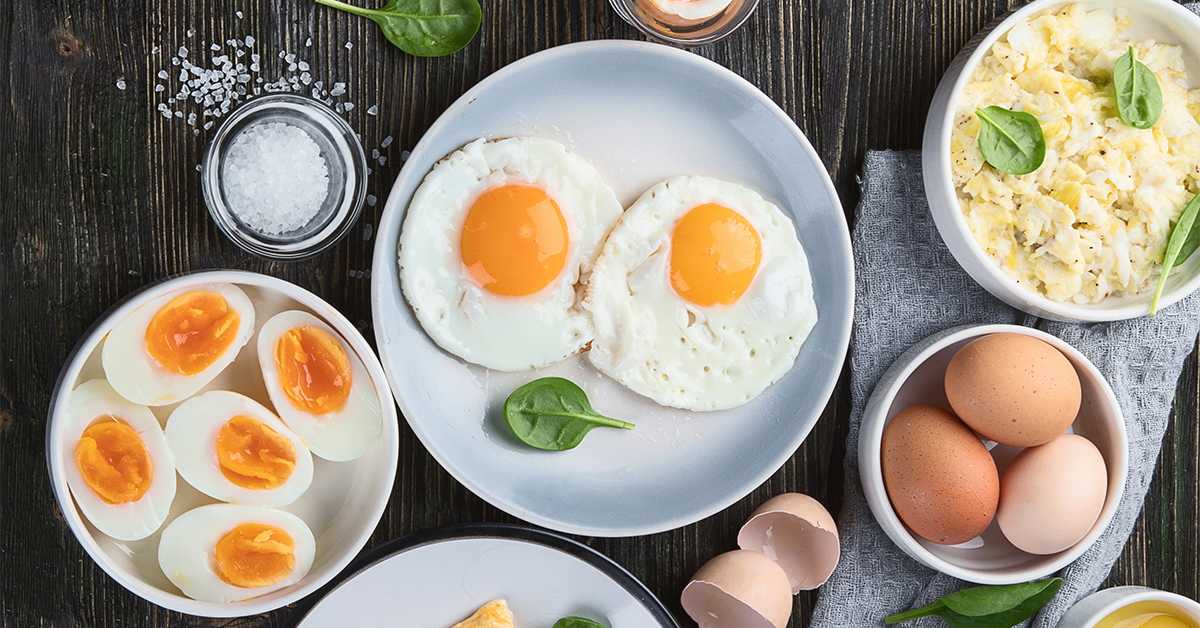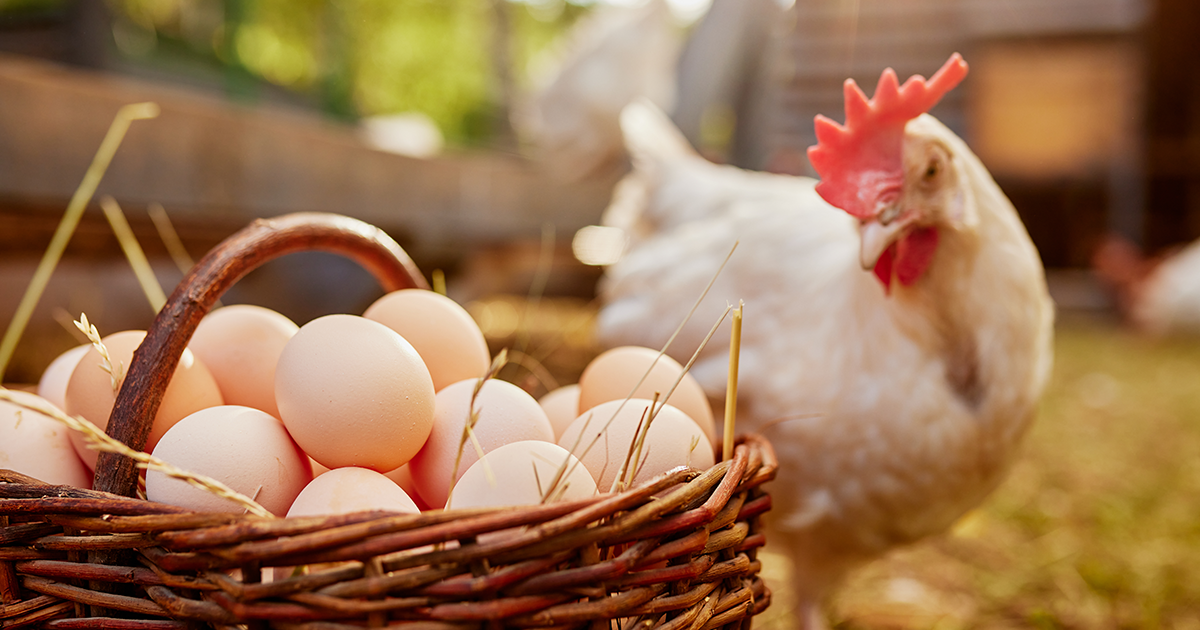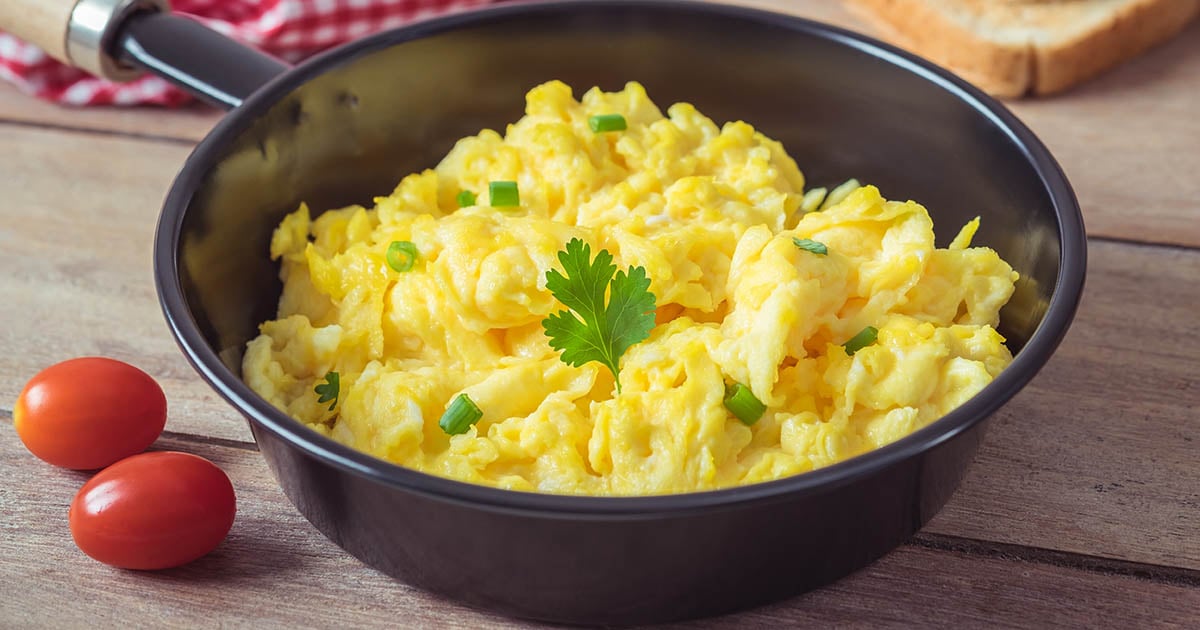Cracking techniques for maximising vitamin D in eggs
26 March 2024 | By: Newcastle University | 4 min read
How do you like your eggs in the morning: scrambled, or fried? The difference can mean more than just personal taste.
Over 90% of UK adults consume less than the recommended daily amount of vitamin D, but can we combat vitamin D deficiency simply by changing the way we store and cook our eggs? Researchers at Newcastle University think they have the answer.
Contents:
-
The sunshine vitamin
-
Happy hens make happy eggs
-
Egg storage – fridge or kitchen counter?
-
Maximising vitamin D with egg cooking methods
-
Conclusion
The sunshine vitamin
We can’t overemphasise the importance of vitamin D in our lives. Known as the ‘sunshine vitamin’, vitamin D regulates the amount of calcium and phosphate in the human body that keeps our bones, teeth, muscles, and immune system healthy. Lack of vitamin D can have detrimental effects on both physical and mental health and is associated with bone-related disorders, such as rickets and osteomalacia. In the darker months of autumn and winter, people with lower vitamin D levels are at a higher risk of developing seasonal affective disorder (SAD), otherwise known as ‘winter depression’.
Although most people get their daily vitamin D through skin exposure to sunlight, you may struggle to retain vitamin D if you live in a country with higher latitudes and limited UV exposure – such as the UK.
Despite the need for a vitamin D-enriched diet in the UK, 90% of British adults do not meet the diet requirement for vitamin D. As a result, UK residents are encouraged to take supplements during the darker months of the year to combat vitamin D deficiency.
Surely there’s a better (and more delicious) way for us to pack more vitamin D into our diets?
Happy hens make happy eggs
Since egg yolks are one of the few natural sources of vitamin D, it is vital to retain as much vitamin D as possible in each egg. Inspired by their research into how diet affects the bones and muscles of older people, a team led by Tom Hill, Professor of Nutrition at Newcastle University, started the ‘Sunshine Eggs’ research project in 2021. Their first challenge was to tackle this issue at the source – the farms.
Collaborating with Noble Foods and DSM Ltd, the research team decided to examine whether feeding hens supplementary vitamin D in their diet would result in vitamin D-enriched eggs. They found that the more vitamin D-rich feed the hens consumed, the more vitamin D is present in the eggs the hens lay: an increase of up to 40% over 6 weeks.
Following the publication of this research, the UK’s leading free-range egg brand, The Happy Egg Co., adopted the vitamin D-enriched diet for their flocks. The change in diet resulted in hens laying eggs with 28% more vitamin D per 100g than regular eggs, meaning two large Happy Eggs give you more than 94% of the European daily guideline.

Adopting a vitamin D-enriched diet proved beneficial for the free-range hens at The Happy Egg Co.
Egg storage – fridge or kitchen counter?
Once your eggs have been transported from the farm to your home, what can you do at home to maximise the vitamin D content in your eggs?
Since over 95% of vitamin D remains in an egg after 4 weeks of storage, the team examined how the method in which they were stored – not the time left in storage – could make the biggest impact on vitamin D retention.
Batches of eggs from the same farm were set aside in either ambient storage (AS) on a kitchen worktop, or refrigerated storage (RS) in a walk-in food storage unit maintained at 4-8°C. After 28 days of storage, the eggs were tested for vitamin D retention.
The research team found that the relative humidity in the RS batch was significantly higher (99%) compared to that of the AS batch (62%). Relative humidity is naturally higher in colder temperatures – such as a refrigerated unit – as cold air requires less water vapour to become saturated compared to room temperature air. Since relative humidity drives oxidisation, this means the eggs kept within RS conditions had a higher rate of oxidisation, and therefore a higher loss of vitamin D retention.
Maximising vitamin D with egg cooking methods
Scrambled egg, fried egg, poached egg... everyone has their preference. But if you want to maximise the amount of vitamin D in your diet, you may need to change the way you cook your eggs.
After storing several batches of both RS and AS eggs, our scientists cooked them using one of five methods - scrambling, microwaving, poaching, boiling, or frying – before freeze-drying and analysing them for vitamin D. They then measured the proportion of vitamin D3 and 25-Hydroxyvitamin D3 remaining in the cooked food, compared to vitamin D originally present before cooking.
The best methods of cooking eggs to the worst are as follows:
- Scrambled eggs
- 109% true retention of vitamin D at AS
- 95% true retention of vitamin D at RS
- Microwaved
- 109% true retention of vitamin D at AS
- 99% true retention of vitamin D at RS
- Poached
- 93% true retention of vitamin D at AS
- 91% true retention of vitamin D at RS
- Hard-boiled
- 80% true retention of vitamin D at AS
- 85% true retention of vitamin D at RS
- Fried eggs
- 78% true retention of vitamin D at AS
- 71% true retention of vitamin D at RS
In addition, the vitamin D content of enriched eggs was between 22% and 132% higher than non-enriched eggs, depending on the way they were cooked.

Scrambling eggs helps them retain a high amount of vitamin D.
Conclusion
We might all have personal tastes when it comes to cooking and storing eggs. However, making small changes to our habits can translate to big changes in our diet and general health.
'Our previous studies have shown how we can successfully enrich eggs with vitamin D through the hens’ diet, which could be a valuable food source in helping to address the widespread problem of deficiency in the UK,' says Professor Tom Hill. 'So now we know, it’s not only about the diet the hens are fed that can significantly increase the amount of vitamin D in the egg but the way you cook them that influences how much you are going to be consuming.'
'If you want to retain more of the vitamin D in your eggs then you are better to keep them out of the fridge at ambient temperature. And scramble or poach them is best to retain most of the vitamin.'
'The bigger picture here is that we are proving the benefits of working with industry longer term, to develop real-world food solutions which tackle nutrient deficiencies in the UK population. This is particularly relevant as we await the outcomes from a government call for evidence in 2022, intended to inform policy to improve the vitamin D status of the UK population.
'Our latest Innovate UK funded research into the effects of cooking and storage on vitamin D content of eggs, reassures the commercial partner that the vitamin D has good stability which is good news for egg consumers.'
You might also like:
- read the team’s research paper: The Influence of Storage and Cooking on the Vitamin D Content of 25-Hydroxyvitamin D3-Enriched Eggs by Adam Clark et al. Foods 2023, 12(13), 2522; https://doi.org/10.3390/foods12132522
- check out the original press release: ‘Crack the Code to Vitamin D: How You Store and Cook Your Eggs Matters’
- discover more about the initial 2021 study detailed in our blog post, ‘How we’re putting the sunshine in sunny side up eggs’
- read Professor Tom Hill's profile to find out more about his research as Professor of Nutrition at Newcastle University
